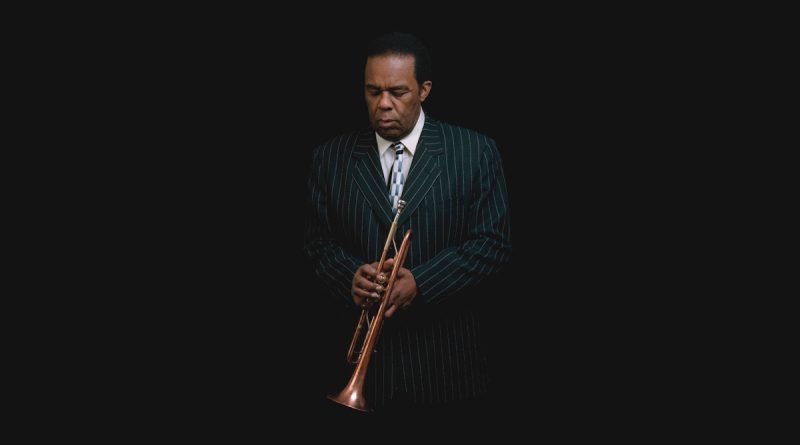He revived the development of trumpet technique in jazz music: Who is Freddie Hubbard?
Contemporary jazz trumpeter Wynton Marsalis says about him: “You can hear Freddie Hubbard's style in all the trumpet players of the 70s. “He is a tremendous trumpeter, just the size, speed, and swing of his sound is enough.”

Hubbard, who left his mark on jazz history as one of the most courageous and creative musicians of the hard-bop and post-bop era, was born on April 7, 1938; He passed away on December 29, 2008.
Hubbard was born as the youngest of six siblings in Indianapolis, where Bebop reigned. He opens his eyes to a family of musicians. He steps into music, unable to remain indifferent to the call of the rhythms emitted by his mother and sister, who play the piano, as well as his brothers, who play the saxophone and piano. Hubbard diversifies his artistic agenda by transferring his inspiration to a wide selection of instruments such as tonette, mellophone, trumpet, flugelhorn, piano, French horn, sousaphone, and tuba.
Frederick Dewayne Hubbard (April 7, 1938 – December 29, 2008) was an American jazz trumpeter. He played bebop, hard bop, and post-bop styles from the early 1960s onwards. His unmistakable and influential tone contributed to new perspectives on modern jazz and bebop.
Completing his first formal music education under the leadership of John H White, Hubbard started his musical journey with the flugelhorn, not the trumpet, at the insistence of his teacher, and became a master in his field. Years later, at White's funeral, Hubbard honors his master with the words, "...without his insistence that I play the flugelhorn, I would not have reached the highest level of my proficiency."
The Indianapolis jazz scene, which was very active in the early 1950s, paved the way for Hubbard to play with the Montgomery Brothers, including Wes Montgomery, in a short time. Hubbard gets his first professional stage experience in Indianapolis, playing with the Montgomery Brothers and his own band called The Contemporaries (1957). Hubbard, who also played with saxophonist James Spaulding during the same period, recorded his first recording as a band leader, Open Sesame, in 1960.
Hubbard's range and power on the trumpet were extraordinary. The integrity and harmony in his solos brought about an interactive experience. After moving to New York in 1958, Hubbard began working with Miles Davis' drummer Philly Joe Jones, saxophonist Sonny Rollins, and composer Quincy Jones with his melodic creativity and restrained enthusiasm, collecting awards including DownBeat. During this time, Hubbard, who was closely marked by Blue Note, recorded several more albums as a band leader, the most notable of which was Ready for Freddie (1961), which he talked about with pride in his interviews.
The roots of Hubbard's musical practice are based on the rhythmic expressions and nuances of swing, bebop, hard bop, and post-bop. The works that the musician left to jazz listeners are of historical importance and also represent a very diverse and large collection. Hubbard enriches his jazz oeuvre with Red Clay, Little Sunflower, Hub-Tones, and many more standardized compositions in his extensive discography.
Hubbard also takes part in many landmark recordings of avant-garde jazz music of the 1960s. The musician, who revived the development of the trumpet technique in jazz music, highlights the free jazz character in Ornette Coleman's Free Jazz, Oliver Nelson's Blues and the Abstract Truth, Eric Dolphy's Out to Lunch, and John Coltrane's Ascension albums.
It is possible to identify the performance of Hubbard, who offers a unique musical texture just like Miles Davis, from his first notes. Hubbard opened a new door in contemporary jazz practice by popularizing the trumpet and flugelhorn while developing an instantly recognizable technical and harmonic vocabulary. Contemporary jazz trumpeter Wynton Marsalis said, “You can hear Freddie Hubbard's style and all the elements worth playing in all the trumpet players of the 70s. He does not shy away from emphasizing that one of his biggest sources of inspiration is Hubbard, saying, "He is a tremendous trumpeter, just the size, speed, and swing of his sound are enough."
Proving his timelessness with his fluent and energetic playing, Hubbard has been returning to acoustic jazz performances since the 1980s, touring with his own bands and continuing to play with Herbie Hancock, Joe Henderson, and Bobby Hutcherson, with whom he has worked over the years.
Even though the serious lip injury he suffered in 1992 significantly limited his technique and speed, Hubbard did not leave the stage until his death. Hubbard, who released more than 60 albums that pioneered the development of jazz music, from hard bop to soul jazz, from electric jazz to funk and fusion, for Blue Note, CTI, Atlantic, and other record labels, was awarded the Masters of Jazz award by the National Endowment for Arts in 2006. crowns his dignity.
We are grateful to Hubbard for speaking to us by going beyond the usual patterns of jazz music with an extroverted, daring, yet subtle performance.
